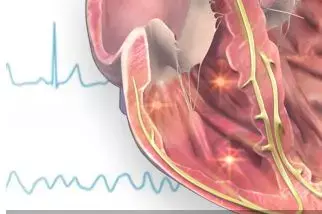- Home
- Medical news & Guidelines
- Anesthesiology
- Cardiology and CTVS
- Critical Care
- Dentistry
- Dermatology
- Diabetes and Endocrinology
- ENT
- Gastroenterology
- Medicine
- Nephrology
- Neurology
- Obstretics-Gynaecology
- Oncology
- Ophthalmology
- Orthopaedics
- Pediatrics-Neonatology
- Psychiatry
- Pulmonology
- Radiology
- Surgery
- Urology
- Laboratory Medicine
- Diet
- Nursing
- Paramedical
- Physiotherapy
- Health news
- Fact Check
- Bone Health Fact Check
- Brain Health Fact Check
- Cancer Related Fact Check
- Child Care Fact Check
- Dental and oral health fact check
- Diabetes and metabolic health fact check
- Diet and Nutrition Fact Check
- Eye and ENT Care Fact Check
- Fitness fact check
- Gut health fact check
- Heart health fact check
- Kidney health fact check
- Medical education fact check
- Men's health fact check
- Respiratory fact check
- Skin and hair care fact check
- Vaccine and Immunization fact check
- Women's health fact check
- AYUSH
- State News
- Andaman and Nicobar Islands
- Andhra Pradesh
- Arunachal Pradesh
- Assam
- Bihar
- Chandigarh
- Chattisgarh
- Dadra and Nagar Haveli
- Daman and Diu
- Delhi
- Goa
- Gujarat
- Haryana
- Himachal Pradesh
- Jammu & Kashmir
- Jharkhand
- Karnataka
- Kerala
- Ladakh
- Lakshadweep
- Madhya Pradesh
- Maharashtra
- Manipur
- Meghalaya
- Mizoram
- Nagaland
- Odisha
- Puducherry
- Punjab
- Rajasthan
- Sikkim
- Tamil Nadu
- Telangana
- Tripura
- Uttar Pradesh
- Uttrakhand
- West Bengal
- Medical Education
- Industry
Ultra-short-acting B-blockers lower mortality in persistent tachycardia patients: Study

Despite extensive research, the literature is littered with numerous therapies that brought initial hopes of disease modulation only to be found not to make patients survive longer and, in some cases, increased mortality. Beta blockers have been shown to have immunomodulatory actions in addition to their cardiovascular effect and previous trials have suggested that beta blockers may have an important role in the treatment of the patient with septic shock.
A recent study finding has suggested that the use of ultra-short-acting β-blockers such as esmolol and landiolol in septic patients with persistent tachycardia despite initial resuscitation, was associated with significantly lower 28-day mortality.
Historically, β-blockers have been considered to be relatively contraindicated for septic shock because they may cause cardiac suppression. On the other hand, there is an increasing interest in the use of β-blockers for treating septic patients with persistent tachycardia despite initial resuscitation.
To answer whether ultra-short-acting β-blockers such as esmolol and landiolol improve mortality in septic patients with persistent tachycardia despite initial resuscitation, a team of researchers recently conducted a study ,published in the Chest Journal.
The study design was a systematic review and meta-analysis. Researchers searched MEDLINE, Cochrane Central Register of Controlled Trials, and Embase for RCTs that compared the mortality of patients with sepsis and septic shock treated with esmolol or landiolol. They updated our search on April 20, 2020. Two independent reviewers assessed whether titles and abstracts met the following eligibility criteria: (1) RCT, (2) patients with sepsis and septic shock aged ≥18 years, and (3) treatment with either esmolol/landiolol or placebo/no interventions. Two authors independently extracted selected patient and study characteristics and outcomes. The results of all analyses are presented using random-effect models.
Data analysis revealed the following facts.
- Seven RCTs with a pooled sample size of 613 patients were included. Of these, six RCTs with 572 patients reported 28-day mortality.
- Esmolol or landiolol use in patients with sepsis and septic shock was significantly associated with lower 28-day mortality (risk ratio, 0.68; 95% CI, 0.54–0.85; P < .001).
- Unimportant heterogeneity was observed (I2 = 31%).
- The absolute risk reduction and number of patients to be treated to prevent one death were 18.2% and 5.5, respectively.
For full article follow the link: https://doi.org/10.1016/j.chest.2021.01.009
Dr Satabdi Saha (BDS, MDS) is a practicing pediatric dentist with a keen interest in new medical researches and updates. She has completed her BDS from North Bengal Dental College ,Darjeeling. Then she went on to secure an ALL INDIA NEET PG rank and completed her MDS from the first dental college in the country – Dr R. Ahmed Dental College and Hospital. She is currently attached to The Marwari Relief Society Hospital as a consultant along with private practice of 2 years. She has published scientific papers in national and international journals. Her strong passion of sharing knowledge with the medical fraternity has motivated her to be a part of Medical Dialogues.
Dr Kamal Kant Kohli-MBBS, DTCD- a chest specialist with more than 30 years of practice and a flair for writing clinical articles, Dr Kamal Kant Kohli joined Medical Dialogues as a Chief Editor of Medical News. Besides writing articles, as an editor, he proofreads and verifies all the medical content published on Medical Dialogues including those coming from journals, studies,medical conferences,guidelines etc. Email: drkohli@medicaldialogues.in. Contact no. 011-43720751


